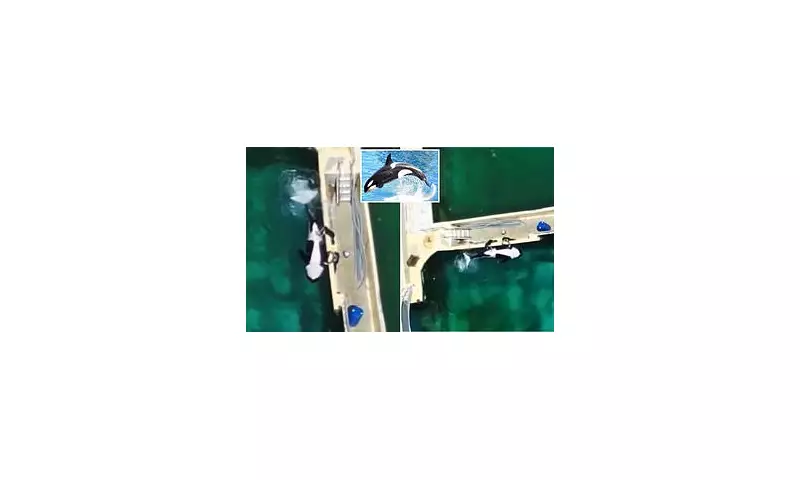
A deeply disturbing video has surfaced from Marineland Antibes, France's largest marine park, showing trainers engaging in a highly controversial practice with a captive adolescent orca. The footage, which has ignited a firestorm of global outrage, depicts park staff manually stimulating the young male whale to collect semen for artificial insemination purposes.
Graphic Footage Sparks International Condemnation
The explicit recording, obtained and published by animal rights organisation PETA, shows trainers standing on the edge of a concrete tank while performing the intimate procedure on the orca named Inouk. The young whale, estimated to be approximately 12 years old, remains largely stationary during the process as park staff work to obtain his semen.
Marineland Antibes has defended the practice as a necessary component of their European Conservation Breeding Programme, claiming it helps prevent inbreeding among their captive orca population. However, animal welfare experts and ethicists have universally condemned the procedure as psychologically damaging and ethically indefensible.
Park's Defence Meets Widespread Skepticism
In an official statement, the marine park asserted that the procedure is "carried out under the supervision of the park's veterinary team" and causes "no harm to the animal." They further justified the practice by explaining it allows them to "diversify the gene pool" of their captive orcas without transporting animals between facilities.
Dr. Ingrid Visser, a renowned orca specialist, vehemently disputed these claims, stating: "This is a gross violation of the animal's welfare. Orcas are highly intelligent, complex social beings, not breeding machines. This procedure is both physically and psychologically invasive."
Growing Scrutiny on Captive Marine Mammal Practices
The controversy comes amid increasing global scrutiny of marine parks that keep cetaceans in captivity. Several countries have already banned or severely restricted the practice, including the UK, where the last captive killer whale died in 1993.
PETA and other animal rights organisations are now demanding immediate government intervention and a thorough investigation into Marineland's practices. They argue that the video evidence demonstrates an urgent need for stricter regulations governing the treatment of marine mammals in captivity across Europe.
As the international community reacts to this revelation, the future of marine parks like Marineland Antibes appears increasingly uncertain, with public opinion steadily shifting against the keeping of these magnificent ocean giants in concrete tanks.





